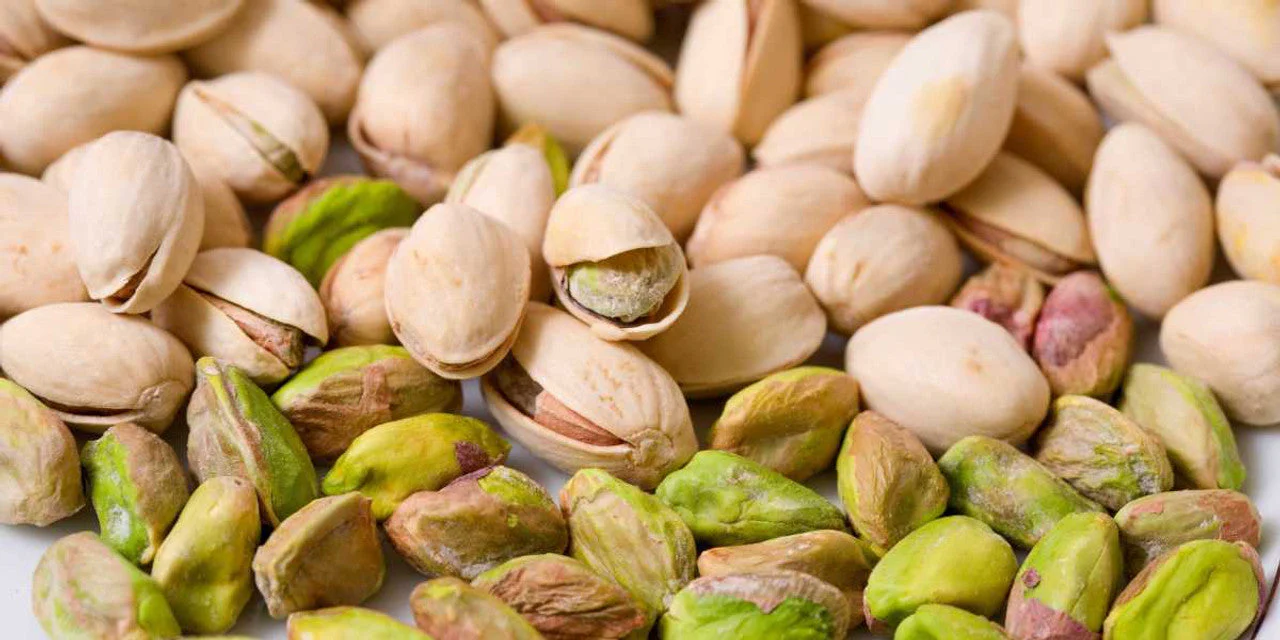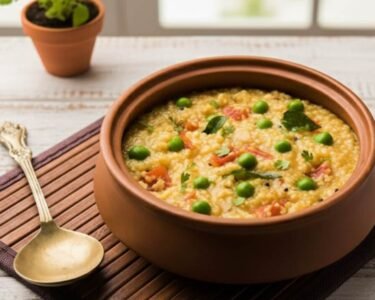Pistachios, often called the “green gold,” are more than just a crunchy, flavorful snack — they are a powerhouse of nutrients that can help manage and prevent several common deficiencies in the body. Whether eaten plain, roasted, or added to your meals, these small nuts pack an impressive nutritional punch. From improving heart health to balancing nutrient levels, pistachios can be a simple yet effective addition to your diet. Here’s a detailed look at how pistachios help manage multiple deficiencies and support overall well-being.
1. Rich Source of Protein and Amino Acids
Pistachios are one of the highest-protein nuts, containing about 6 grams of protein per ounce (28 grams). They are a complete source of essential amino acids like leucine, lysine, and valine — the building blocks of muscle and tissue repair. For vegetarians and vegans, pistachios are an excellent way to supplement protein intake, especially when paired with other plant-based foods like lentils or grains.
Deficiency Addressed:
- Protein deficiency: Common among vegetarians and those with restrictive diets.
- Amino acid deficiency: Can lead to fatigue, muscle weakness, and poor recovery.
How They Help:
The amino acids in pistachios promote muscle synthesis, energy production, and healthy skin. Regular consumption ensures your body has the raw materials needed to rebuild cells efficiently.
2. Iron and Copper — Combating Anemia and Fatigue
Iron deficiency anemia is one of the most widespread nutritional issues globally. Pistachios are a surprisingly good source of iron and copper, both of which play a critical role in red blood cell formation and oxygen transport.
Deficiency Addressed:
- Iron deficiency: Leads to tiredness, pale skin, and low immunity.
- Copper deficiency: Impairs iron absorption and hemoglobin production.
How They Help:
A handful of pistachios provides about 1.2 mg of iron and 0.4 mg of copper, which work synergistically to boost hemoglobin levels. Pair pistachios with vitamin C-rich foods like oranges or strawberries to enhance iron absorption naturally.
3. Vitamin B6 — For Brain Function and Hormone Balance
Pistachios are among the best natural sources of vitamin B6, a nutrient vital for brain health, mood regulation, and hormone production. Vitamin B6 helps convert food into energy and supports the synthesis of neurotransmitters such as serotonin and dopamine.
Deficiency Addressed:
- Vitamin B6 deficiency: Causes irritability, depression, anemia, and weakened immunity.
How They Help:
One ounce of pistachios provides over 25% of your daily B6 requirement. Regular intake helps maintain stable energy levels, balanced hormones, and a stronger immune response. This makes pistachios particularly beneficial for women with hormonal imbalances and those under stress.
4. Magnesium and Potassium — For Muscle and Nerve Health
Modern diets often lack sufficient magnesium and potassium, two minerals essential for muscle function, nerve transmission, and blood pressure regulation. Pistachios are naturally rich in both.
Deficiency Addressed:
- Magnesium deficiency: Can cause muscle cramps, anxiety, and poor sleep.
- Potassium deficiency: Leads to fatigue, muscle weakness, and irregular heartbeat.
How They Help:
A serving of pistachios provides around 120 mg of potassium and 30 mg of magnesium. These minerals work together to maintain electrolyte balance, reduce blood pressure, and support healthy muscle contractions. Athletes and people who sweat heavily benefit greatly from pistachios as a natural electrolyte snack.
5. Healthy Fats — Fighting Vitamin D and E Deficiency
Fat-soluble vitamins like A, D, E, and K require healthy fats for absorption. Pistachios contain heart-healthy monounsaturated and polyunsaturated fats that not only lower bad cholesterol but also help the body absorb these vital nutrients effectively.
Deficiency Addressed:
- Vitamin E deficiency: Can cause dry skin, fatigue, and weakened immunity.
- Vitamin D absorption issues: Poor fat intake can limit vitamin D utilization.
How They Help:
The healthy fats in pistachios act as carriers for these vitamins, ensuring your body uses them efficiently. Additionally, pistachios themselves contain vitamin E, an antioxidant that protects cells from oxidative stress and supports skin health.
6. Zinc — For Immunity and Wound Healing
Zinc is essential for immune function, wound healing, and DNA synthesis. Pistachios provide a moderate amount of zinc — around 0.6 mg per ounce — making them a great snack to support overall immunity and metabolism.
Deficiency Addressed:
- Zinc deficiency: Leads to slow wound healing, hair loss, poor appetite, and frequent infections.
How They Help:
The zinc content in pistachios supports enzyme function and helps the body repair tissues efficiently. Combined with their vitamin B6 content, they enhance immune defense and reduce inflammation naturally.
7. Fiber and Antioxidants — Gut and Cellular Health
A healthy gut is the foundation of nutrient absorption. Pistachios contain both soluble and insoluble fiber, which promote a balanced gut microbiome and improve digestion. A healthy gut ensures that the body efficiently absorbs vitamins and minerals from food.
Pistachios are also rich in antioxidants like lutein, zeaxanthin, and polyphenols that protect the body from oxidative stress — a major contributor to cellular damage and nutrient depletion.
Deficiency Addressed:
- Fiber deficiency: Causes constipation and poor nutrient absorption.
- Antioxidant deficiency: Leads to premature aging and inflammation.
How They Help:
Eating pistachios regularly promotes a healthy gut environment, which enhances nutrient uptake and prevents deficiencies over time.
8. How to Include Pistachios in Your Diet
To get the most benefits:
- Eat a handful (about 30 grams) daily as a snack.
- Add crushed pistachios to salads, oatmeal, or yogurt.
- Blend into smoothies for a nutty flavor and protein boost.
- Use ground pistachios as a crust for chicken or fish.
- Mix with dried fruits for an energy-packed trail mix.
Avoid salted or sugar-coated pistachios, as excessive sodium and sugar can reduce their health benefits.
Final Thoughts
Pistachios are not just a tasty treat — they’re a nutrient-dense solution to many common deficiencies. Packed with protein, iron, vitamin B6, magnesium, potassium, and healthy fats, these nuts support muscle repair, nerve health, immunity, and energy metabolism. Regular consumption can help prevent anemia, weakness, and fatigue while improving skin health, brain function, and digestion.
Adding pistachios to your daily diet is one of the simplest and most delicious ways to fill nutritional gaps naturally. A small handful each day can go a long way in maintaining a balanced, deficiency-free body — proving that good health truly can come from something as small as a nut.
Do Follow Us On Instagram







